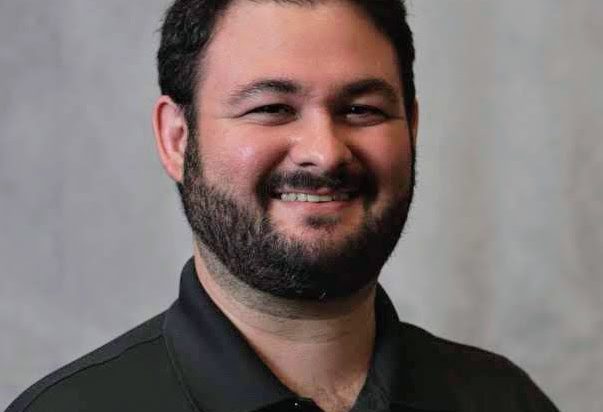After Breaking Into the Tech Industry, Lee Warrick Launched a Programming Podcast to Help Others Do the Same

As a child, Lee Warrick loved logic games. Come college, he found himself gravitating towards coding. “Software development is very similar to a puzzle,” he explained. “You’re given a problem and chip away until you reach a solution.”
But an uninspiring computer science department caused Lee to abandon the field entirely — and put his programming dreams on pause. “I convinced myself that coding was for child prodigies and geniuses only seen on TV,” he said.
Changing his mind
After college, Lee worked in a variety of roles — from firefighter to paramedic to registered nurse. But something was missing. “I found myself looking back on my life and wondering how I ended up so far from my dreams,” said Lee. “As a kid, I wanted to make things. I wanted to code.”
In 2018, he decided it was time to do just that — and enrolled in UCF Coding Boot Camp.
“Saying, ‘I’m going to learn how to program,’ is like setting a New Year’s resolution,” Lee explained — more often than not, it doesn’t happen. “Signing up for the boot camp was a commitment that required a real mental shift.”
Turns out, that was exactly what he needed.
Back in the classroom
From day one, the boot camp proved to be an educational experience like no other.
“As an undergraduate, my computer science professors were unwelcoming, stern, and uncaring,” said Lee. “But instructors in the boot camp are very invested — pivoting day by day to see how they can better convey concepts. It’s a constant feedback loop. My instructor was a ten-year software developer. He was working in the field, in real life, going through the same things as students.”
When classmates felt stuck, Lee’s instructor encouraged self-agency by saying: Don’t ask me. Ask three. “We’d ask classmates and Google before going to see him,” explained Lee. “Back in college, I expected instructors to be in charge of my education. But the fact is, students are responsible.”
For Lee, this realization would make all the difference.
Developing his path
Throughout the boot camp, Lee took ownership of his professional future — using every available resource to advance his progress.
“I knew this was my chance to change course,” he said. “I took it very seriously. Many students put one-hundred percent of their effort into programming, but neglect things like their resume and portfolio, career services, and networking. You have to put effort into that too. It’s just as important as your assignments.”
Lee’s persistence soon paid off. Today, he’s a full-time software engineer at the digital agency Oddball. Life looks completely different than it did a few years ago — and Lee couldn’t be happier. “I’ve never been in a job with this kind of pay and benefits,” he said. “It’s low-stress, and no lives are at stake. If they are, you’re doing something wrong.”
Finding a gap — and filling it
Lee has always loved giving back to the coding community.
Before landing his first tech job, he started speaking at meetups and connecting with junior developers. Six months later, a lightbulb went off. “I realized: I could only reach so many people through a meetup,” said Lee. “But through a podcast, information lives online forever and can reach a lot of listeners.”
With that, the Tech Jr podcast was born. In weekly episodes, Lee interviews guests who span the gamut: Netflix engineers, Google designers, hiring managers, and more. By “asking all the questions others are afraid to,” he makes coding accessible for all.
“In tech, you often feel like people are ten steps ahead of you, and you don’t want to bother anybody,” Lee explained. “Our podcast provides info for beginners. If I do an interview and the guest talks about something advanced, I have them back up and explain the concept. There can never be enough beginner content.”
Advice for aspiring developers
In May 2020, Lee accepted an instructor position at UCF Coding Boot Camp. There, he continues encouraging students on the path to programming.
After a day of coding on the job, Lee enjoys switching into teaching mode. “My students are a bunch of fresh-faced, excited folks who are looking to learn the basics,” he said. “I get to provide that for them.”
Some of his best advice stems from personal experience. “When it comes to projects, don’t make something you think everyone will love,” Lee tells students. “Make something that matters to you — choose the most off-the-wall thing that you like. If you’re a Marvel nerd and want to create an encyclopedia of superheroes, do that. Find the edge for assignments by showing your passion and investment. It’s inherently rewarding and keeps the motivation alive.”

